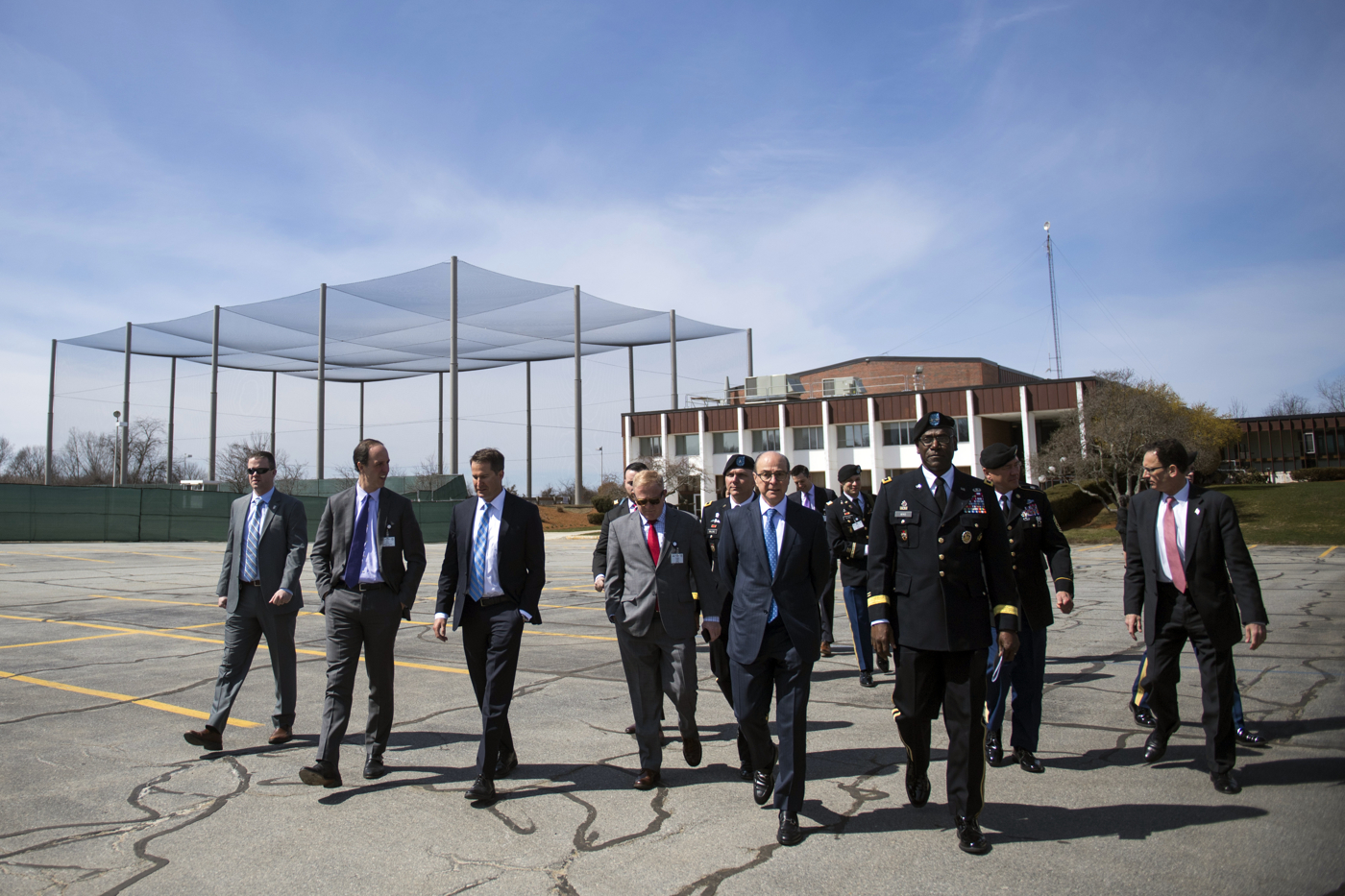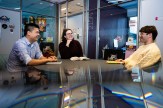Northeastern, Army Research Lab partner to develop technologies to keep warfighters safe, effective
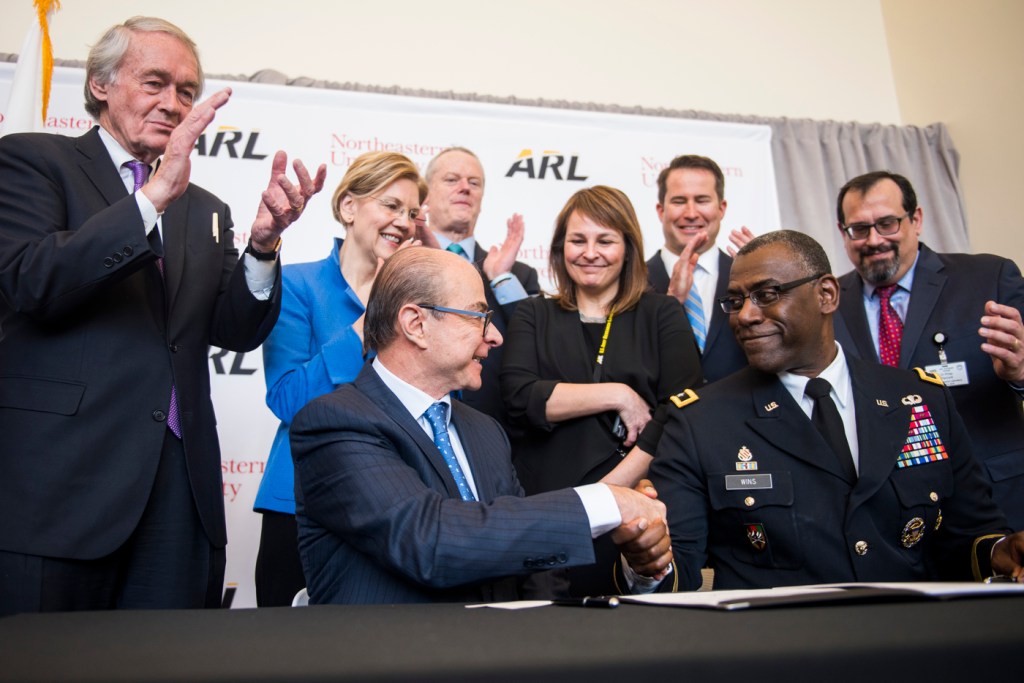
The Army Research Laboratory has located its Northeast regional hub at Northeastern University’s George J. Kostas Research Institute for Homeland Security, it was announced Monday morning. The partnership will place Army Research Lab staff with university researchers and other regional partners to work on innovative technologies aimed at keeping the nation’s warfighters safe on the battlefield. The move is part of ARL’s extended campus program where the co-located teams are able to bring multiple perspectives into developing homeland security and defense technologies and bring them out of the labs and onto the battlefields at an accelerated speed.
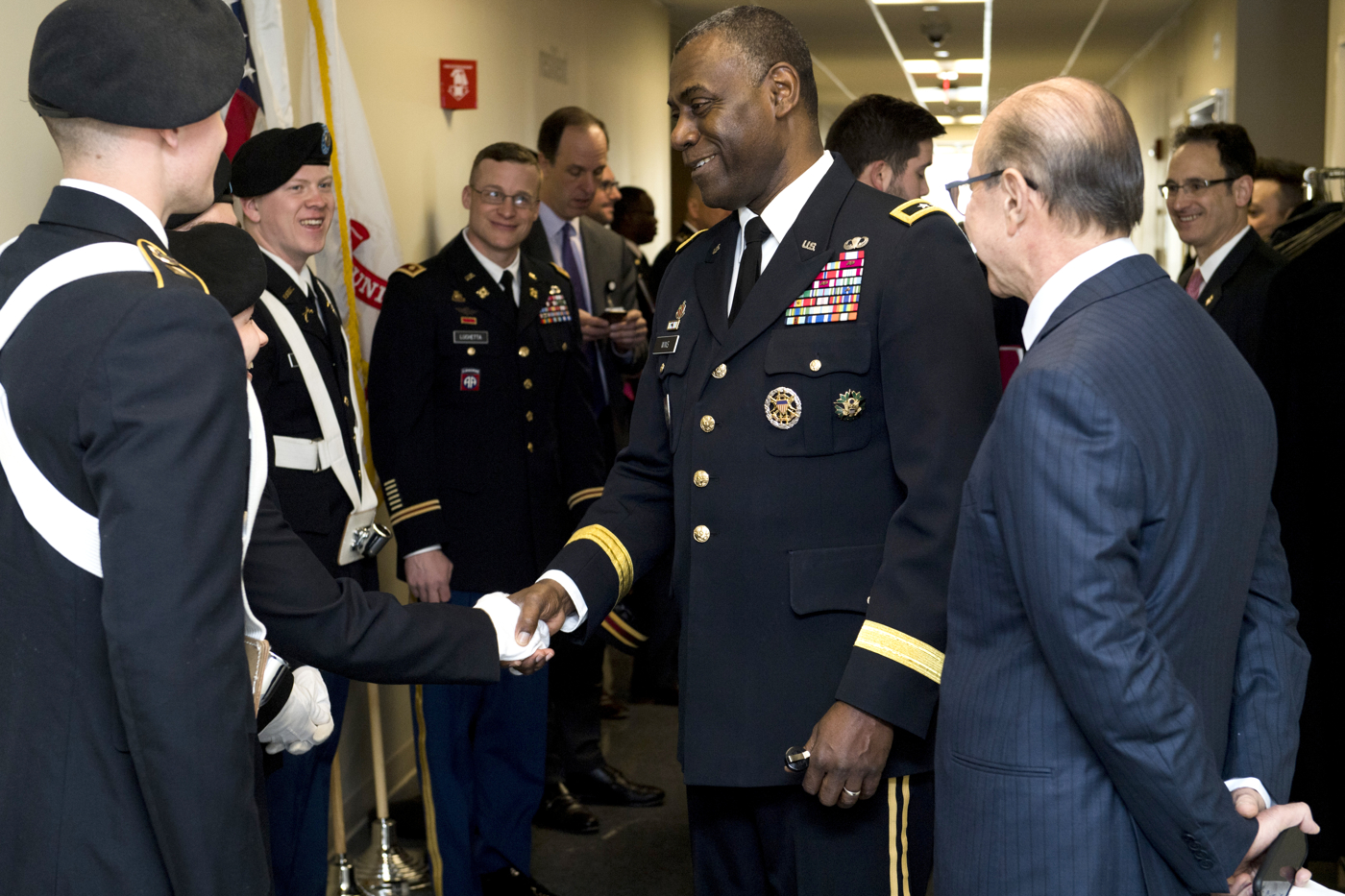
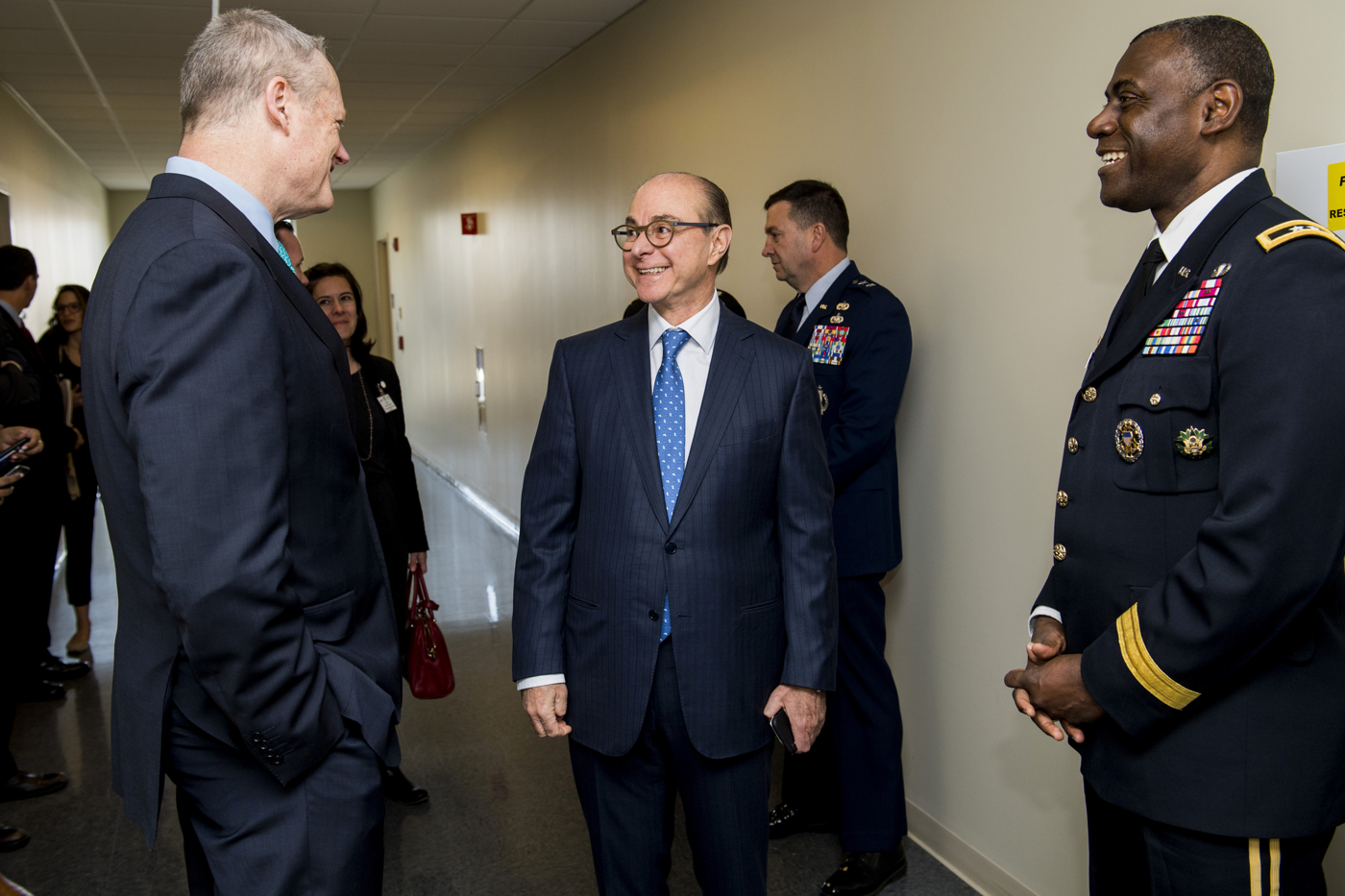
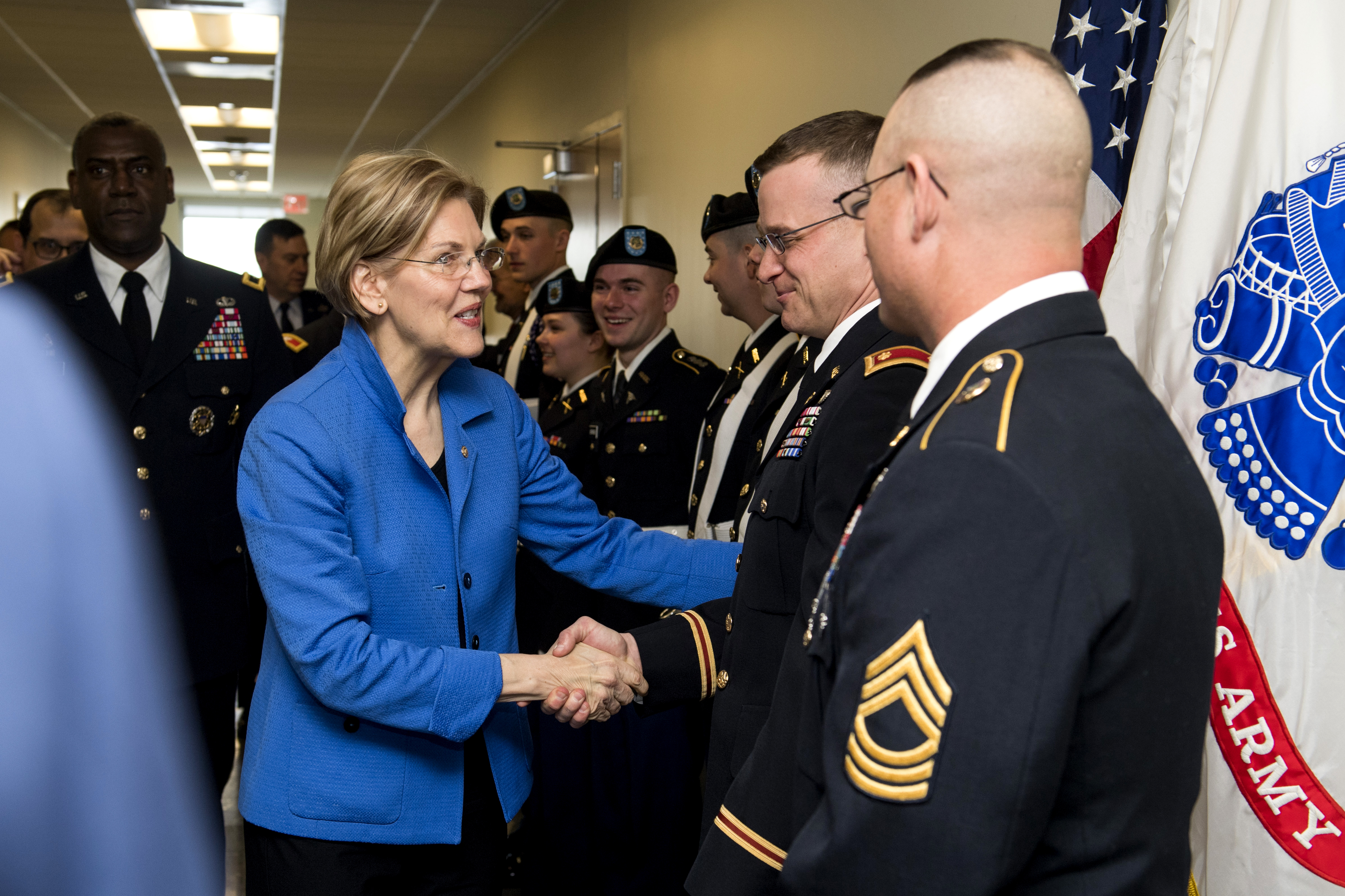
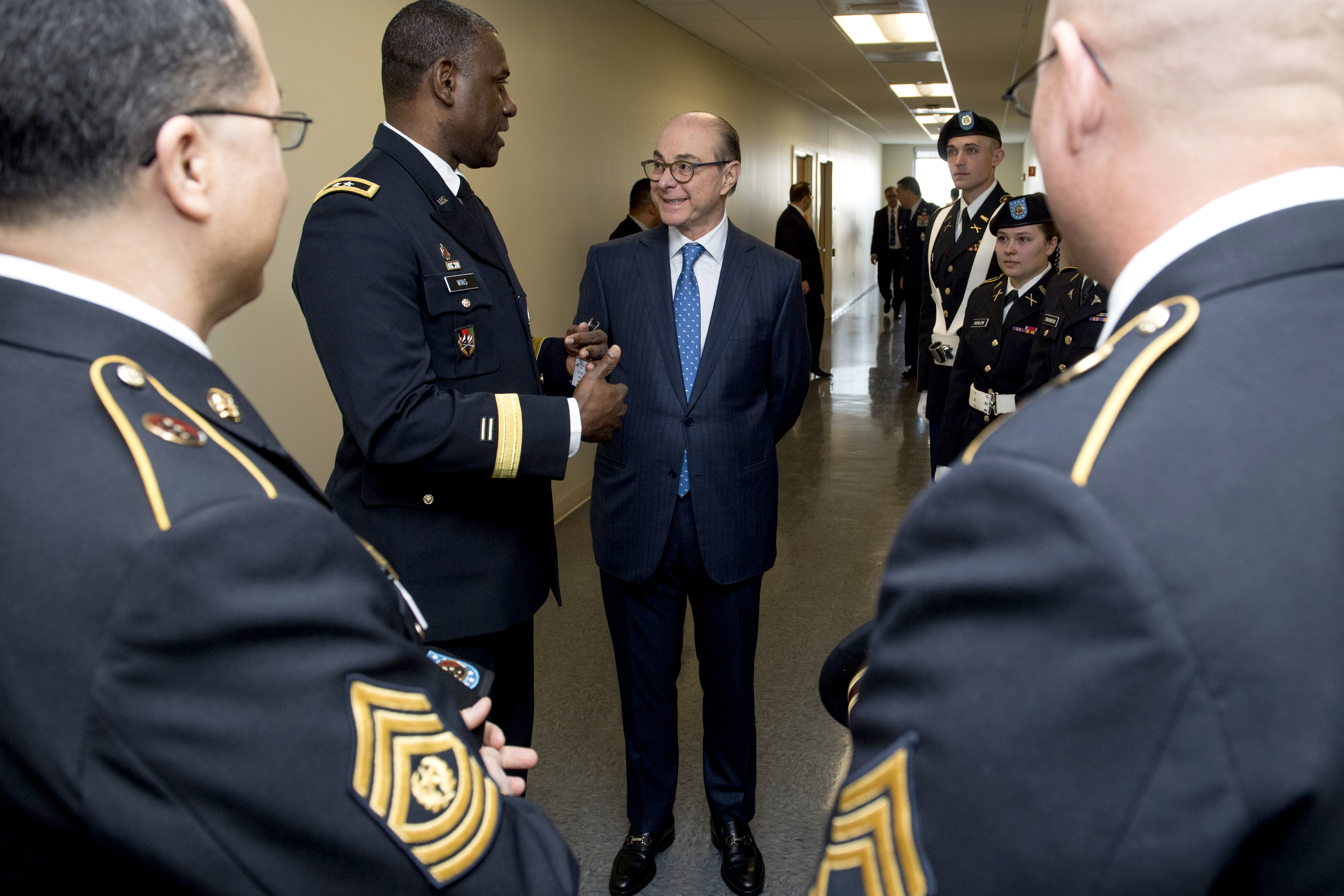
Northeastern was selected as the host for ARL Northeast due to the university’s expertise in defense and homeland security research, including cybersecurity and materials research, as well as its commitment to defense and homeland security research and strong track record of establishing unique and innovative partnerships with industry leaders and other academic institutions.
ARL Northeast will leverage expertise and facilities throughout the Northeast region to accelerate research and innovation. Specific to Northeastern, the partnership is expected to build upon the university’s existing work in areas such as tactical shelters and drones.
Northeastern and the Army Research Lab leaders were joined by elected officials and representatives from higher education, industry, and the military for the announcement, which was held at Northeastern’s Innovation Campus in Burlington, Massachusetts.
“We have an enormous responsibility,” said Joseph E. Aoun, president of Northeastern University. “This responsibility is to be a convener, to bring the best and brightest from the universities, from Hanscom [Air Force Base], from [the U.S. Army Natick Soldier Systems Center], and from industry to work together to make this nation evermore secure and to make this nation No. 1 in the world when it comes to security. We can do it together.”
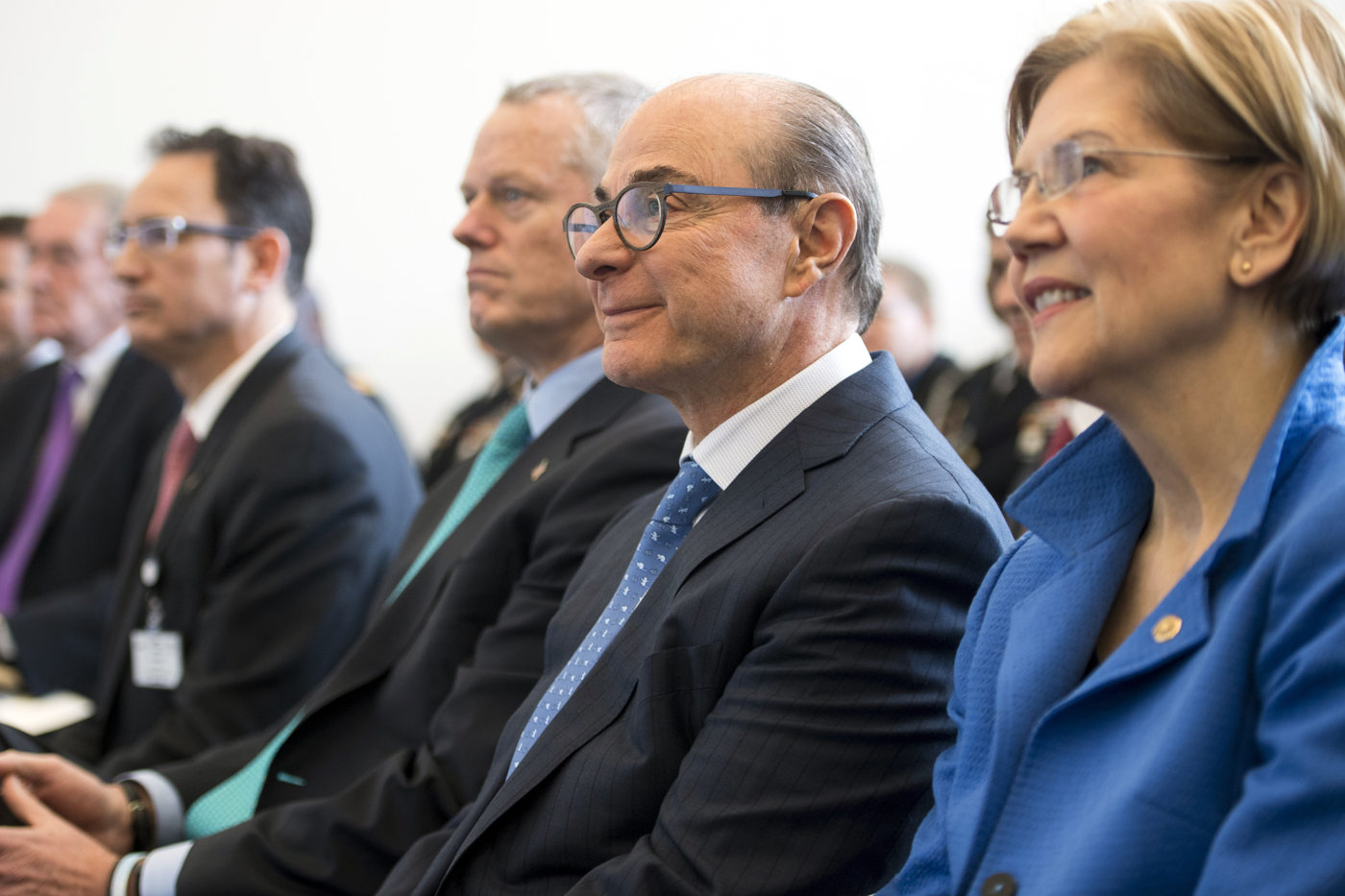
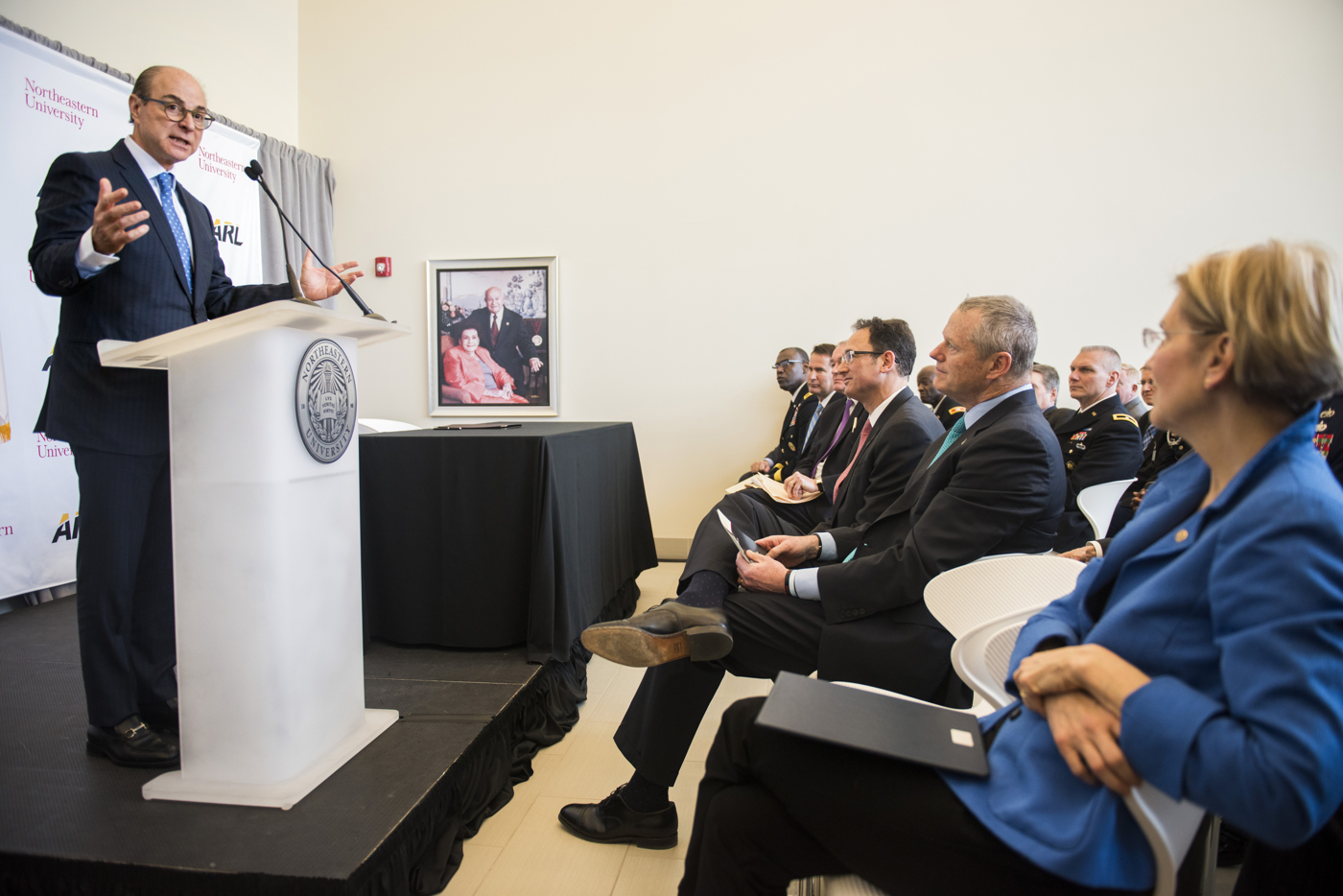
Melissa Flagg will serve as the leader of ARL Northeast. Through this partnership, ARL staff will be located on-site at the Kostas Research Institute in order to tap into defense-related research and innovation taking place at Northeastern, in Massachusetts, and across the Northeast.
Massachusetts Gov. Charlie Baker noted that a year ago he visited Northeastern’s Burlington campus to announce a $3 million state grant to lead a university-industry partnership focused on developing smart sensors and nanomaterials to be used for a range of medical, defense, and energy applications. He said he was pleased that ARL is recognizing the Kostas Research Institute as the ideal location to advance its own work.
“Congratulations to all of you for the big signal this sends by having the ARL decide to put its Northeast location here in the commonwealth,” Baker said.
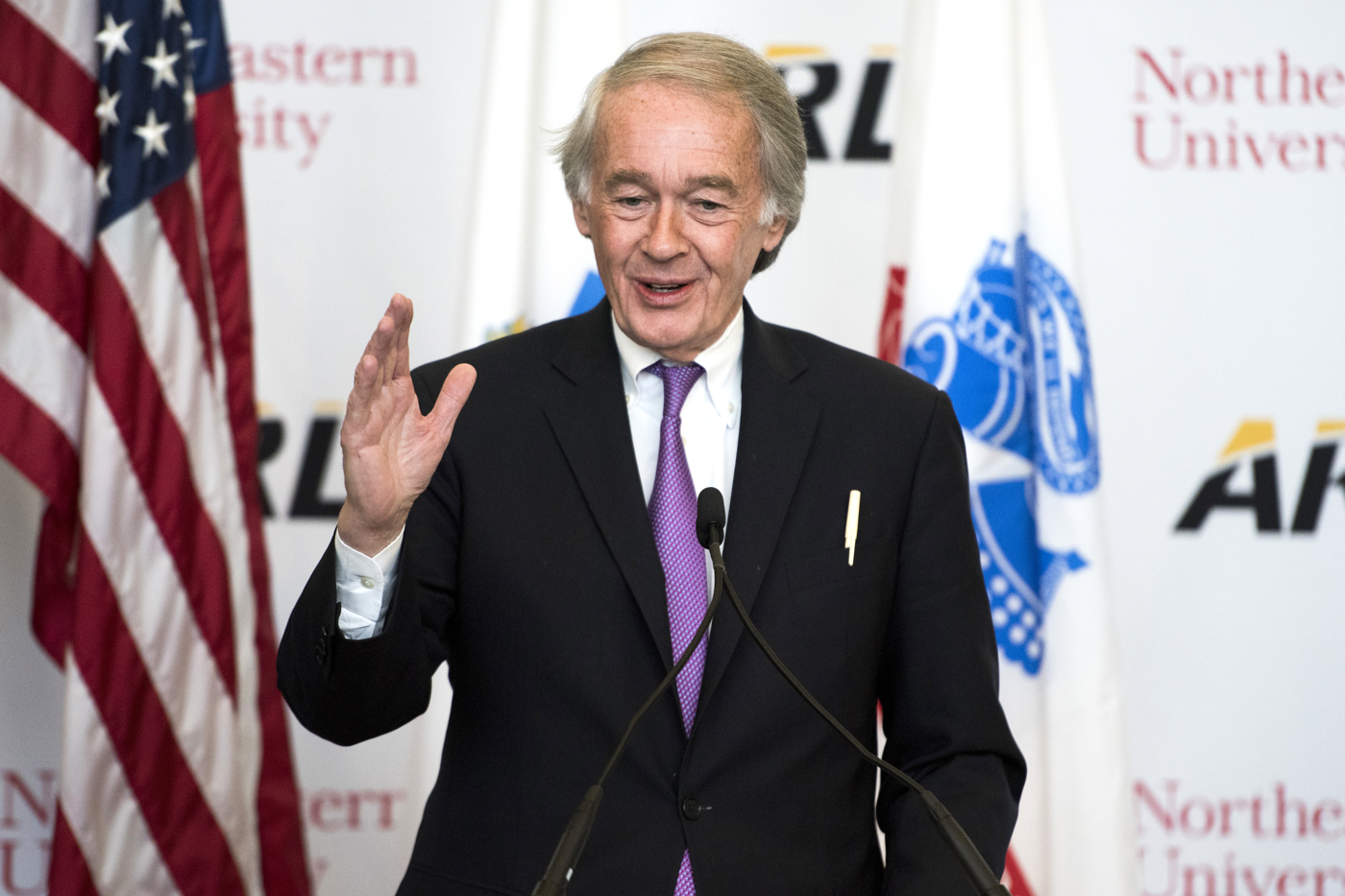
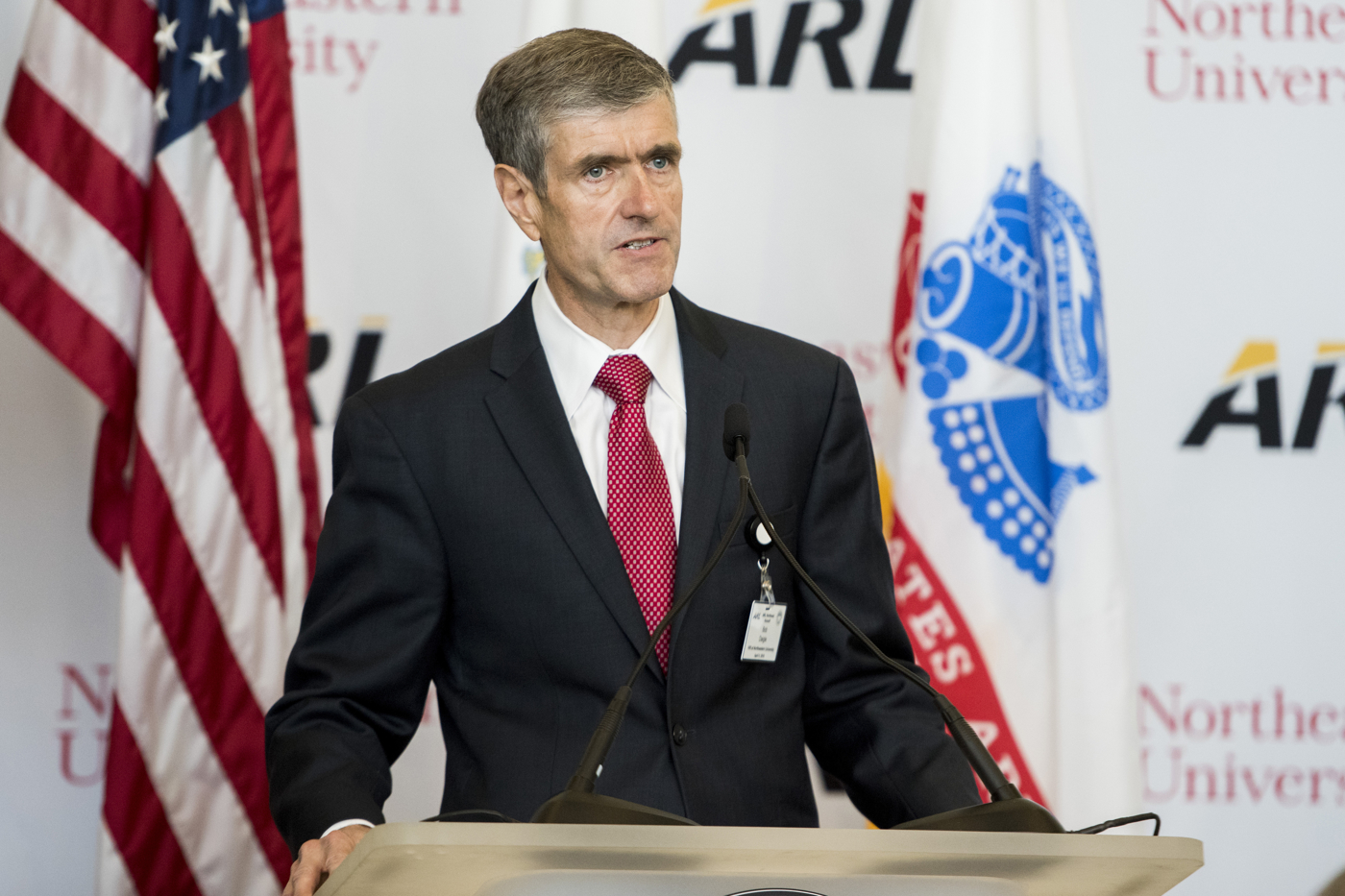
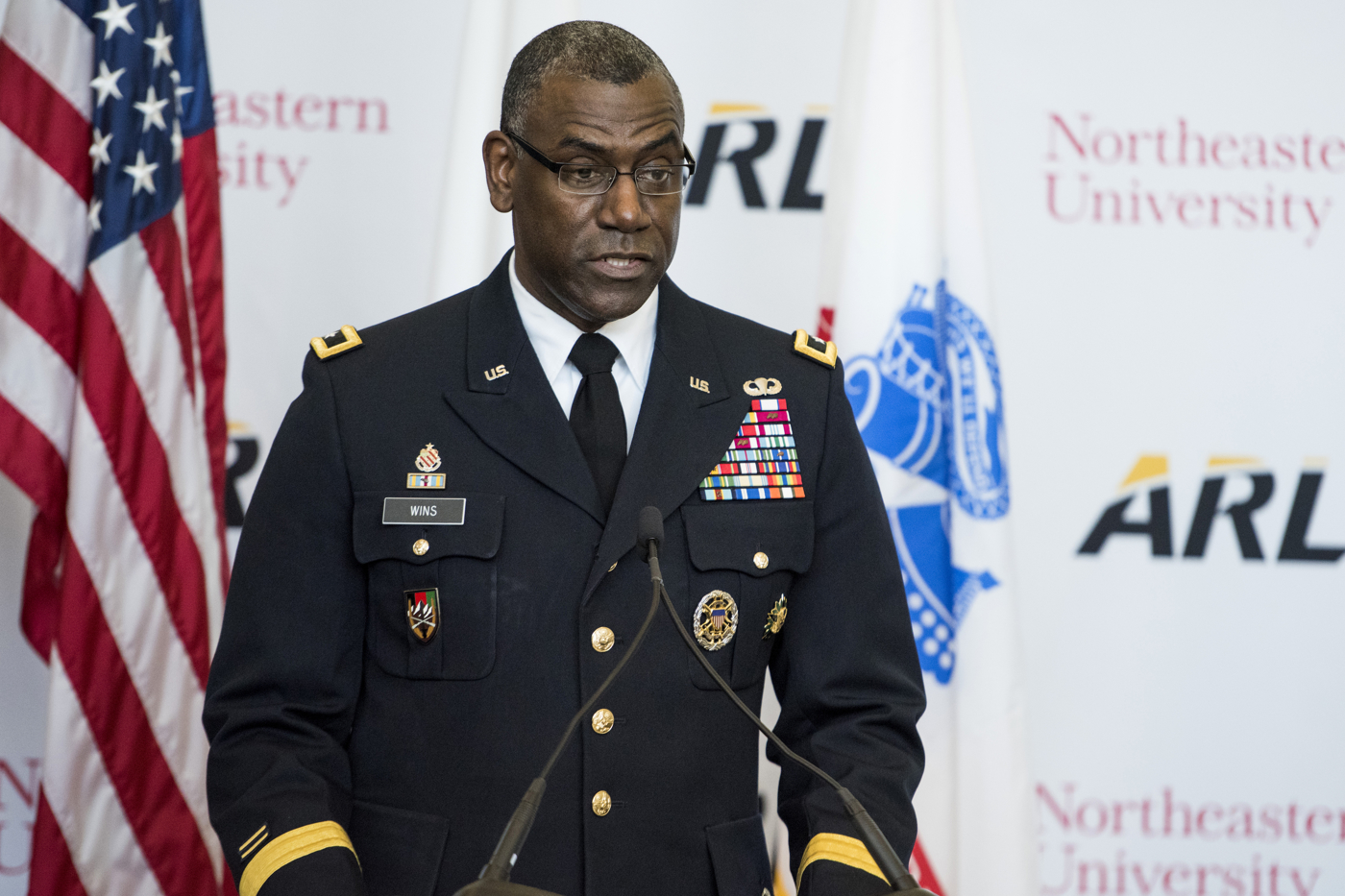
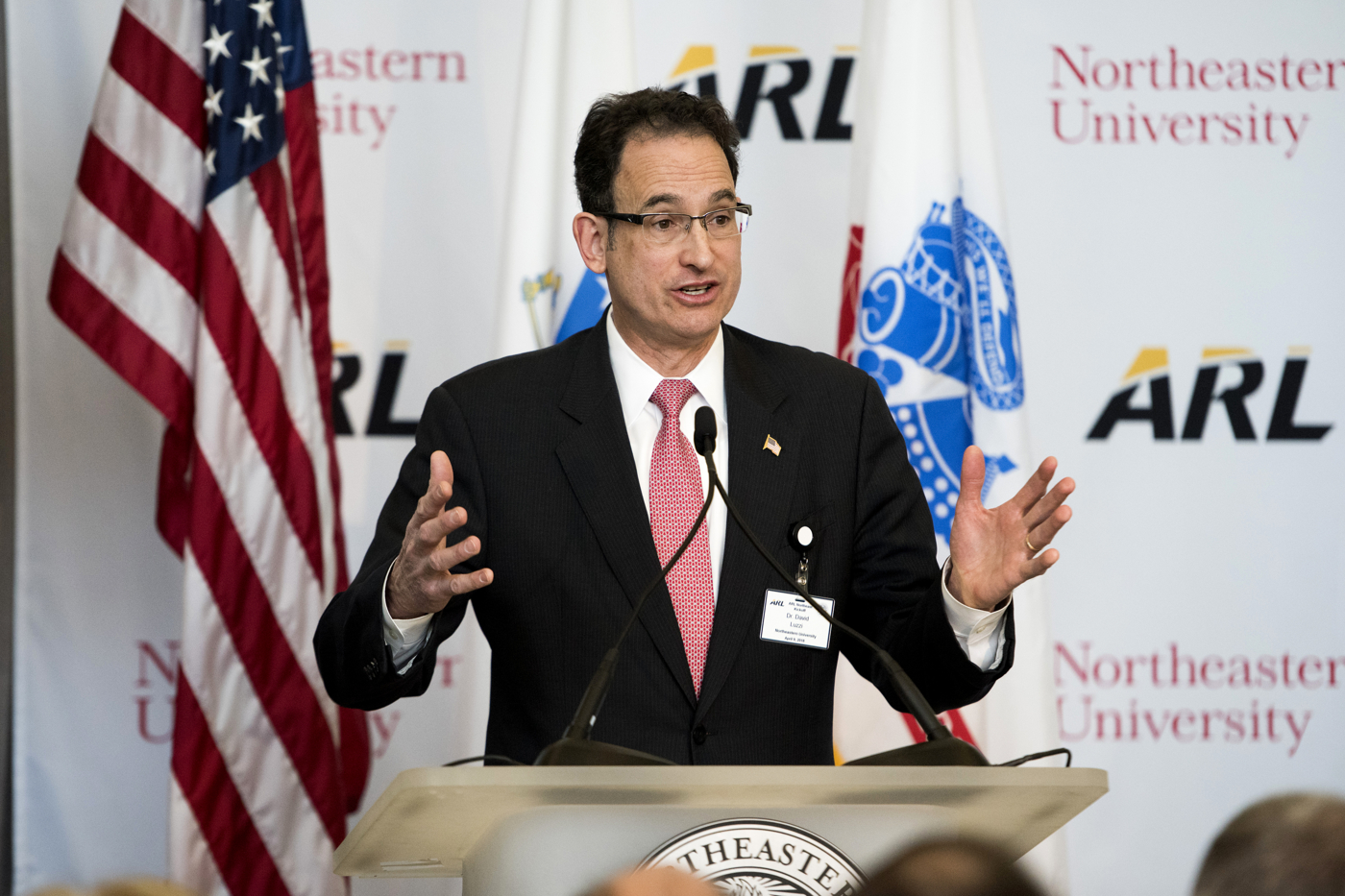
The U.S. Army Research Laboratory is part of the U.S. Army Research, Development and Engineering Command. ARL Northeast is the fourth and final extended campus location announcement, following the establishment of campuses at the University of Texas (ARL South), the University of Southern California (ARL West), and the University of Chicago (ARL Central).
“I see the basic research being done now at ARL and its partners as the foundation of the capabilities for the future force that we will need,” said Maj. Gen. Cedric T. Wins, commanding general of the U.S. Army Research, Development and Engineering Command. He noted the importance of keeping technology in the pipeline, and said he looks forward to developing lasting relationships from this partnership to strengthen both the Army and the nation.
The Massachusetts congressional delegation in attendance—U.S. Sens. Elizabeth Warren and Edward Markey, and U.S. Rep. Seth Moulton—emphasized the importance of public-private collaborations such as ARL Northeast and underscored the need to keep pace globally on innovation and research to ensure national security.
Warren said that as a member of the Senate Armed Services Committee, she sees everyday “the importance at the intersection between our defense work and our research work, and how this is what protects America’s future.”
Markey hailed Northeastern’s focus on applied research “and making it work in the real world,” adding that housing ARL Northeast at Northeastern will “be paying big dividends for the Army and for the security of our country for generations to come.”
Moulton, a Marine Corps veteran who represents the Massachusetts 6th Congressional District that includes Burlington, noted his excitement that Massachusetts is bringing together the best in academia, leadership, and public-private partnerships “to ensure the survival of success and liberty here at home and around the globe.”
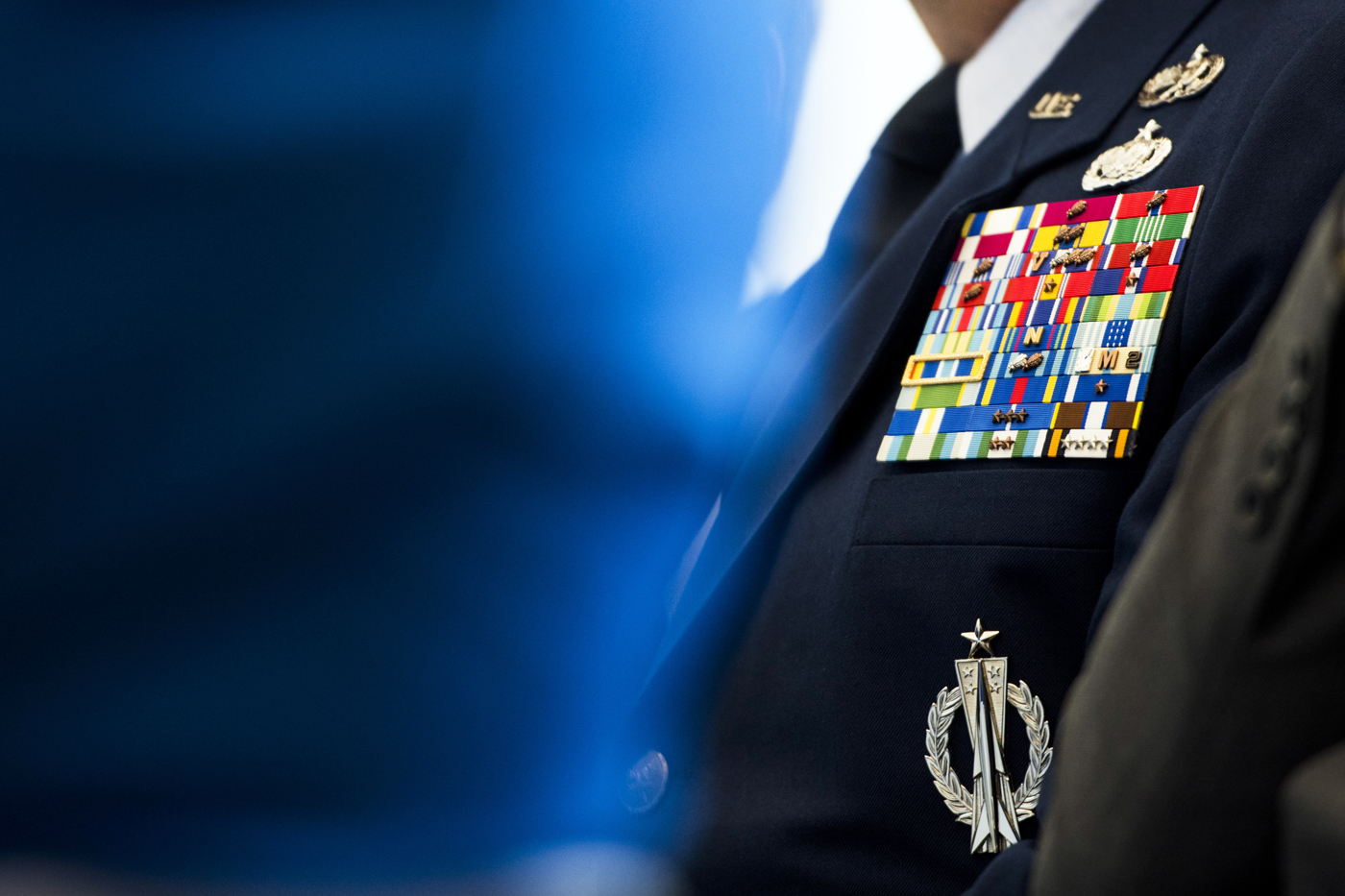
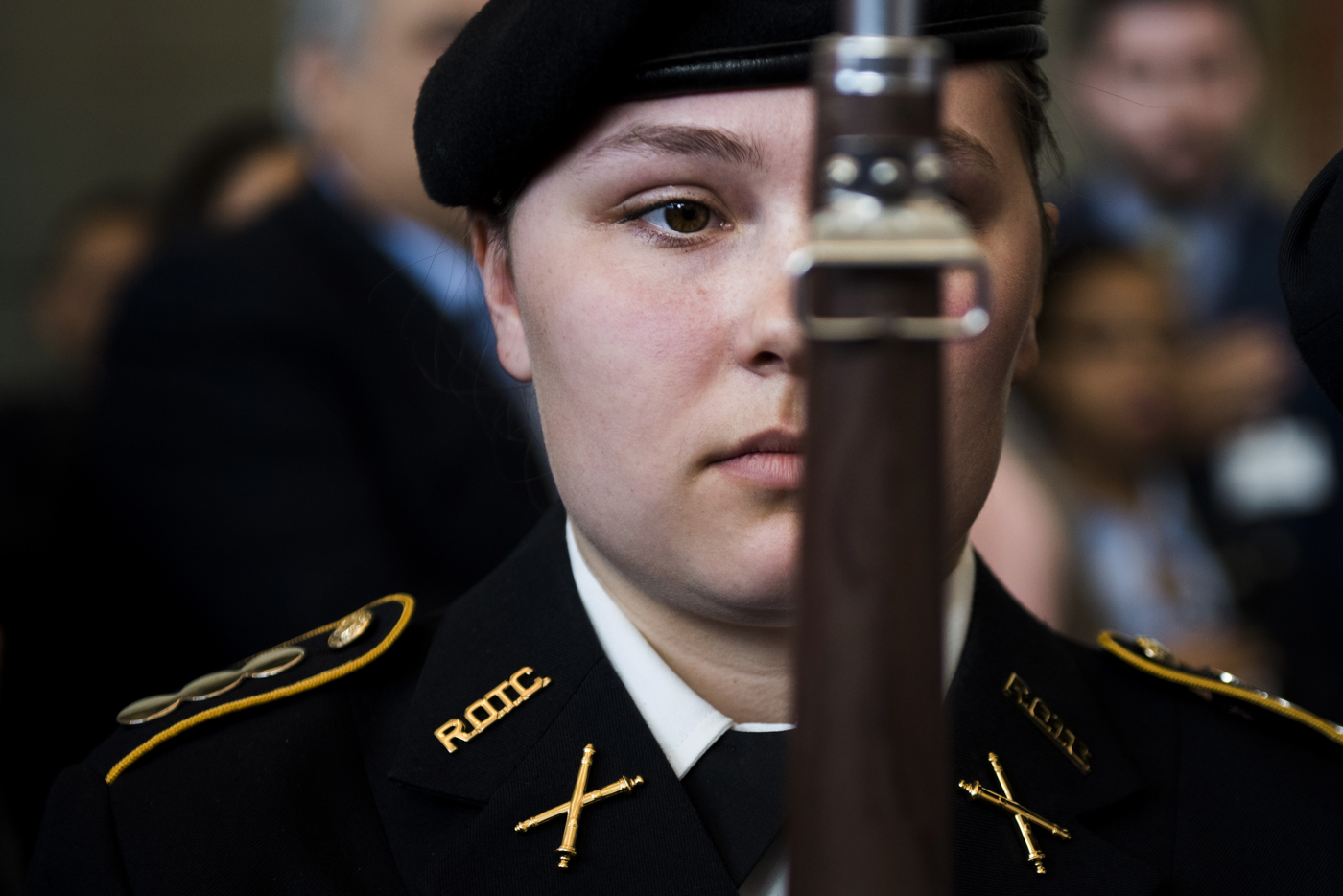

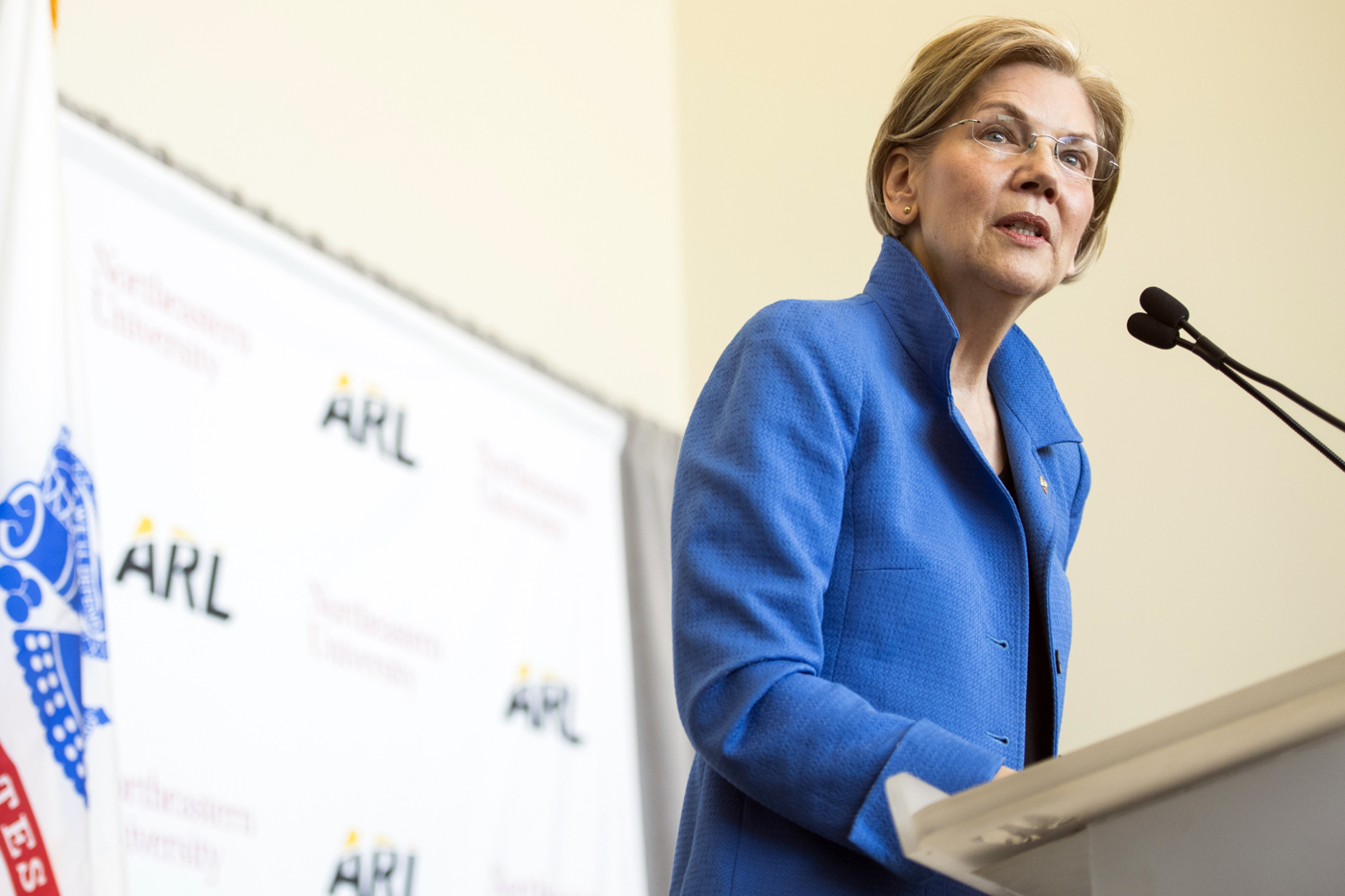
Northeastern’s Kostas Research Institute was designed in accordance with Department of Defense standards and gives Northeastern the capability and clearances to conduct restricted-area research in arenas critical to national security—including materials, additive and nano manufacturing, cybersecurity, autonomous systems, electromagnetics, cryptography, data security, explosives detection, and energy storage and harvesting.
Located on a former U.S. Army Nike missile base site, the Kostas Research Institute was funded by a $12 million investment from alumnus George J. Kostas, E’43, H’07. In his remarks, Aoun highlighted that industry-academic partnerships were an integral part of Kostas’ vision for the institute. The institute, which officially opened in 2011, would go beyond advancing security science and research—it would also enable industry-academic partnerships.
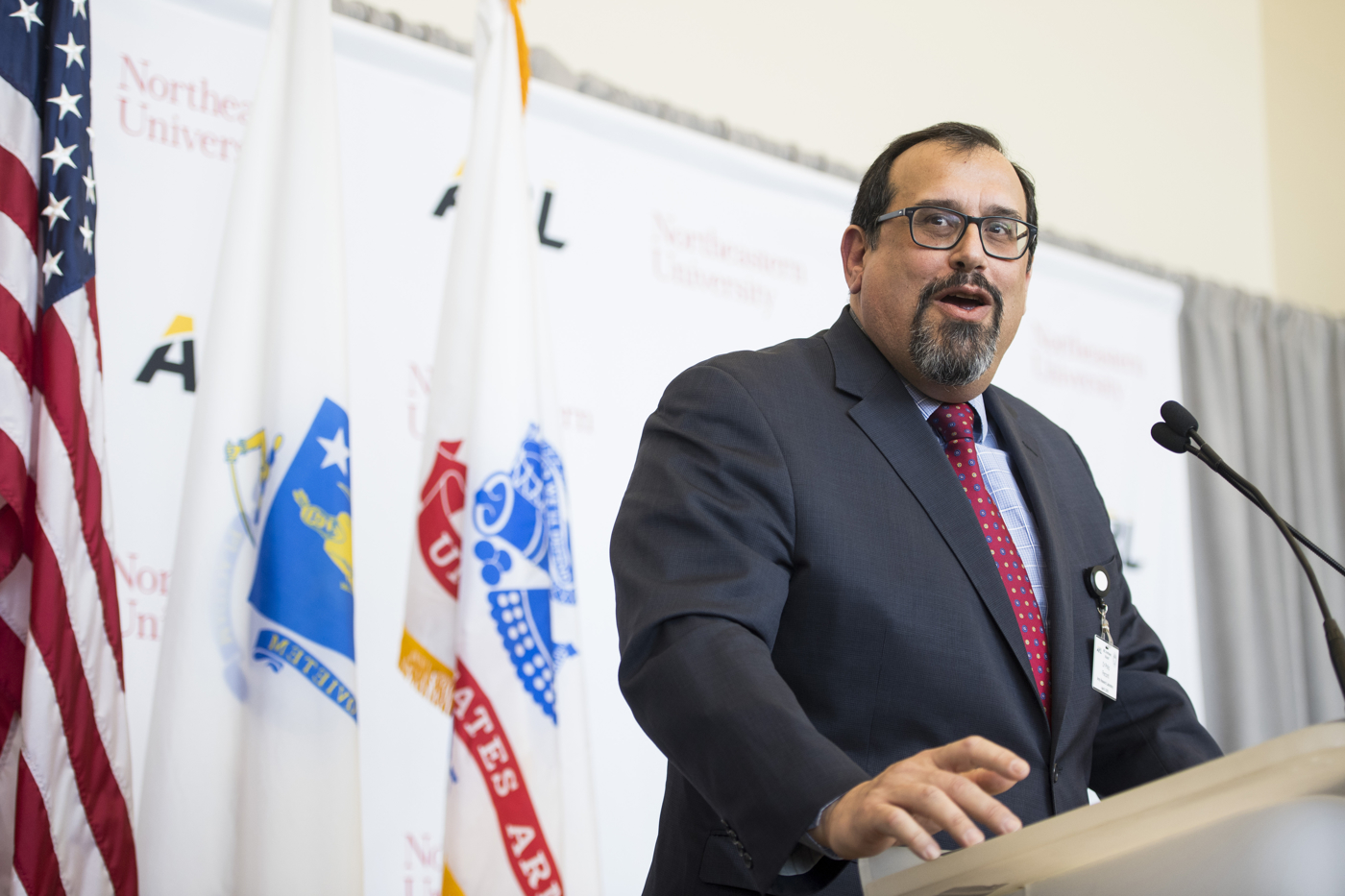
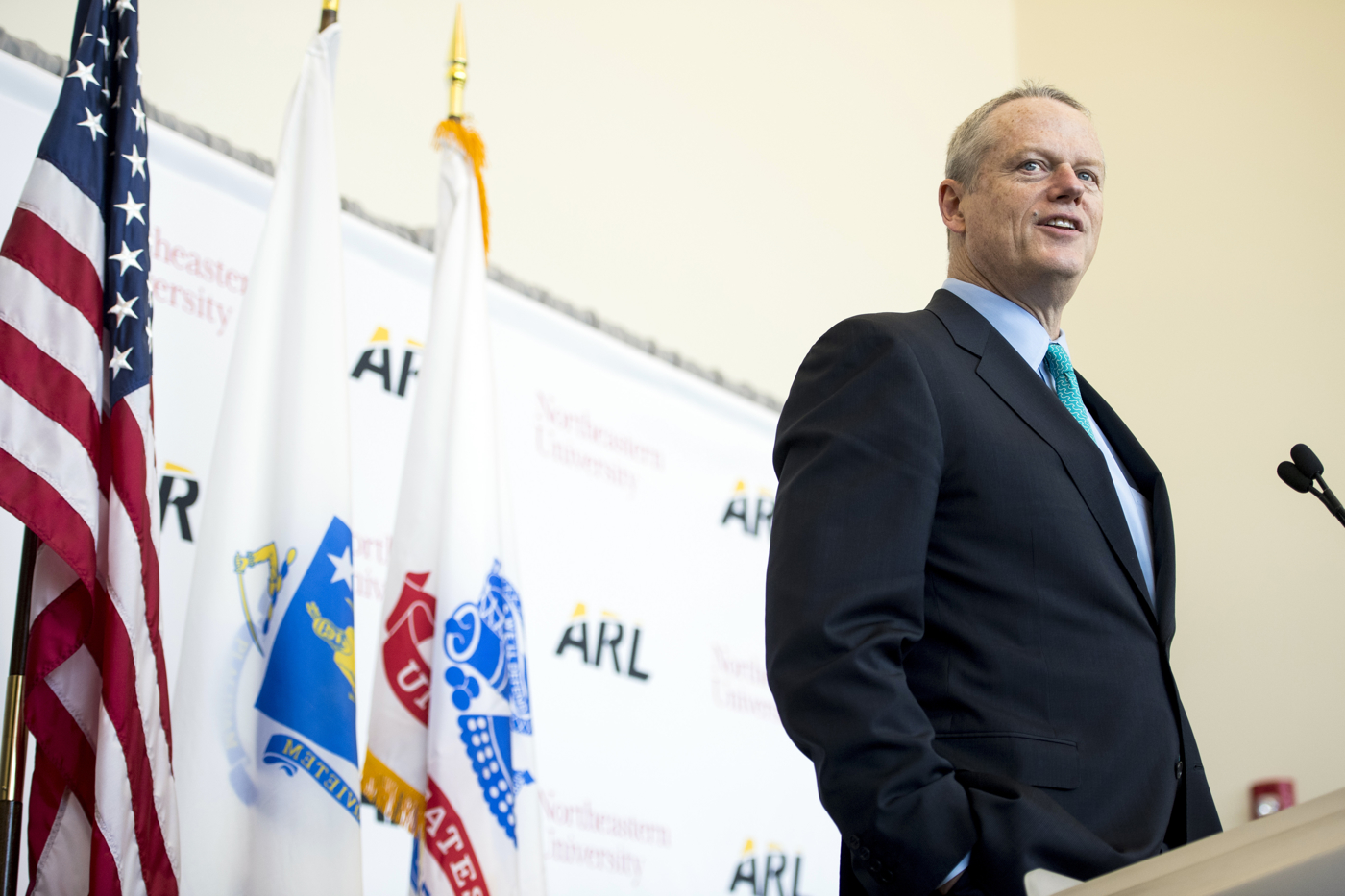
David Luzzi, vice president for the Northeastern University Innovation Campus and vice provost for research innovation and development, said the Kostas Research Institute is committed to results-driven partnerships with government, industry, and other universities aimed at solving the grand challenges in defense and homeland security. He said Rogers Corporation was the institute’s original corporate partner, and that 17 companies are now active at the Burlington campus.
“Today’s most forward-looking government laboratories, corporations, and research universities recognize that going alone doesn’t get the job done anymore,” Luzzi said. “It is partnerships that are critical, and if you’re going to move things from technology in the research lab to application, these partnerships become essential.”
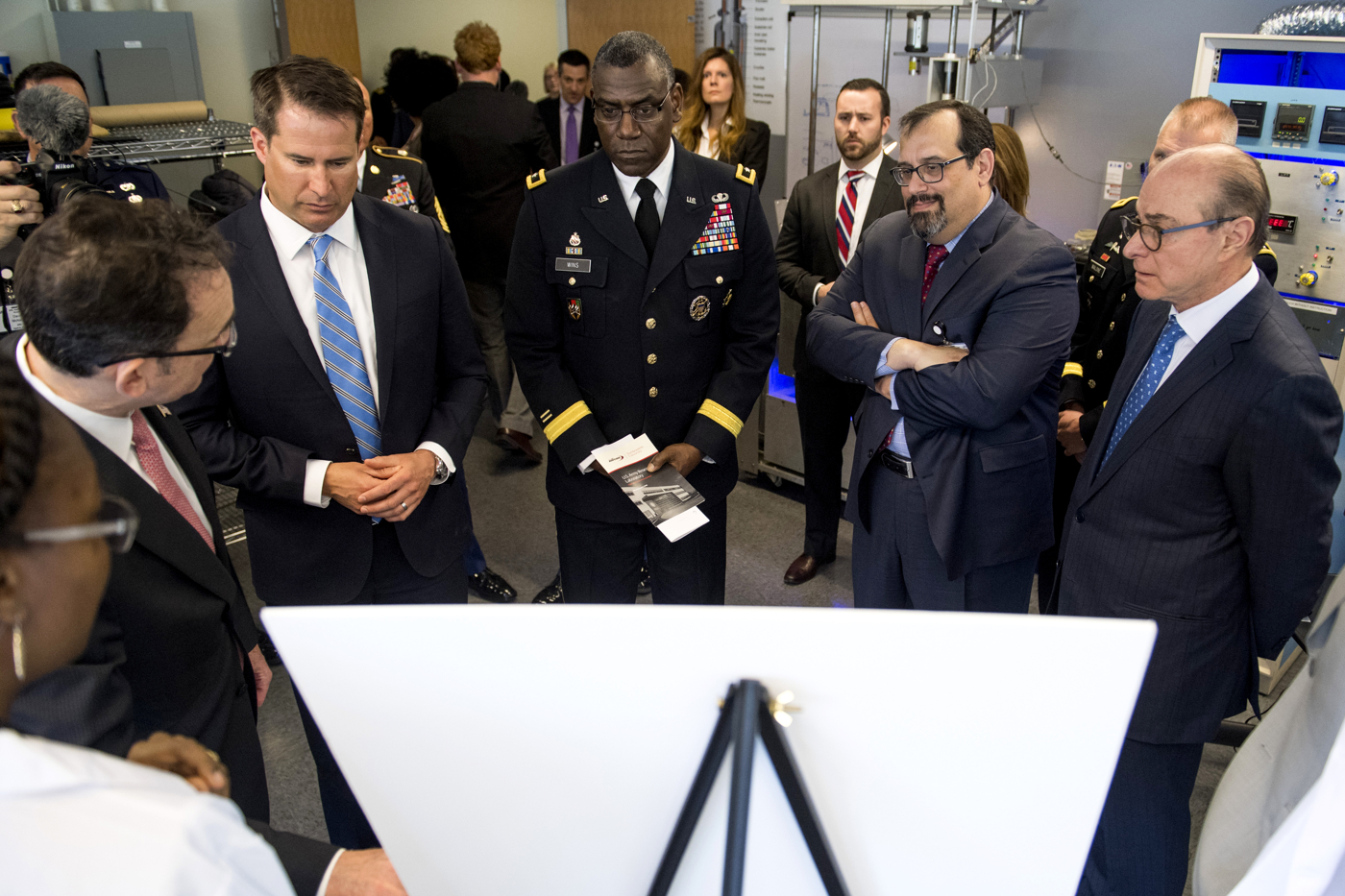
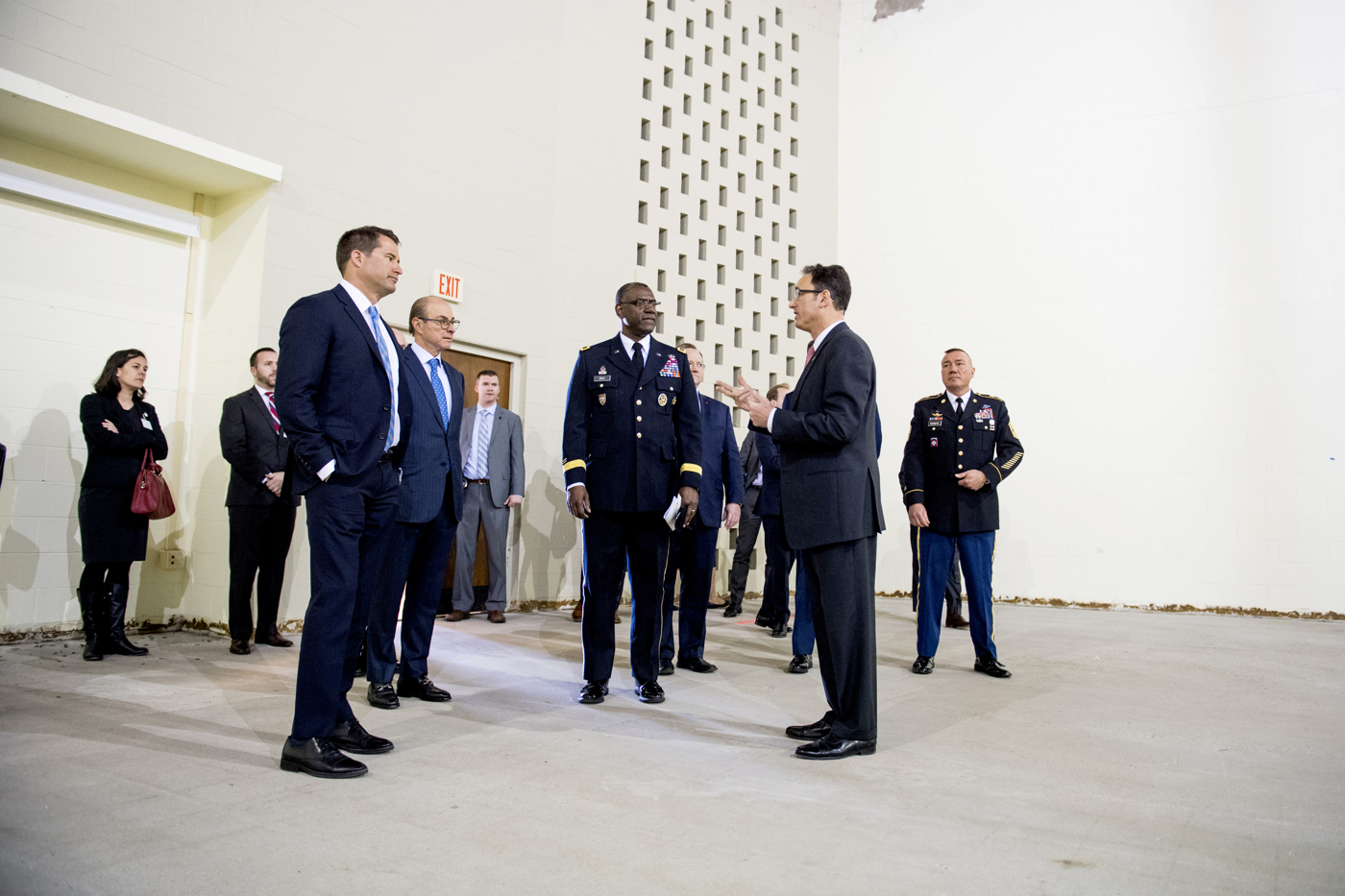
Northeastern’s commitment to the military is underscored not only by its myriad research projects and partnerships, but also by the support it gives to the ROTC program, service members, and veterans. The university’s Veterans Memorial is located in the heart of campus on Neal F. Finnegan Plaza. In the past few years alone, Northeastern has launched the Dolce Center for the Advancement of Veterans and Servicemembers; opened a Veterans of Foreign Wars post—the first to be opened in Massachusetts since 2009 and only the second in the nation to be led by student veterans on a college campus; and secured a cooperative agreement with the U.S. Army Research Laboratory to conduct critical defense research, specifically in designing and developing advanced engineered materials.
